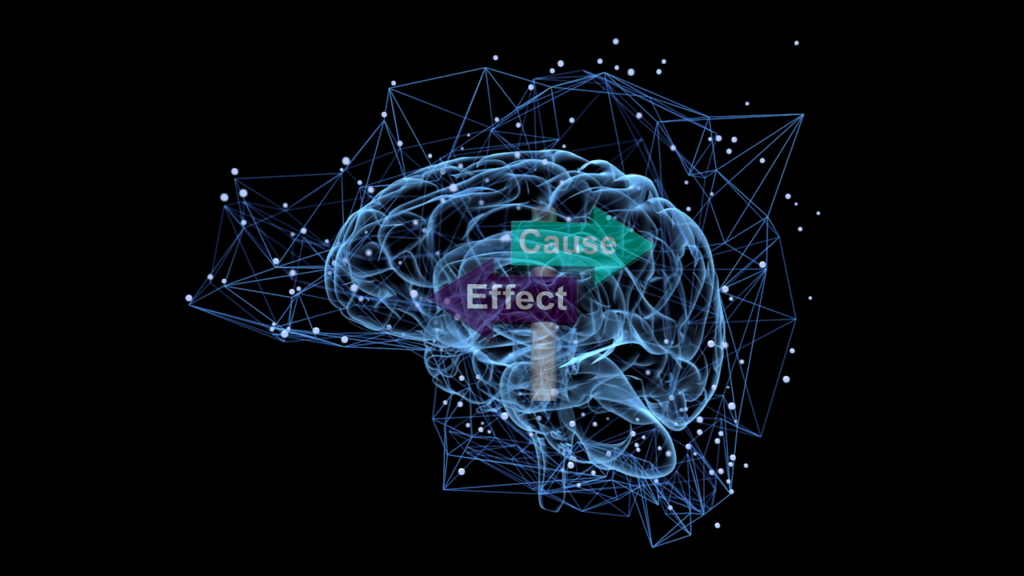“When it comes to data-driven decision-making,” writes Rafi Katanasho, the APAC Chief Technology Officer at Dynatrace, “businesses often have mission-critical questions they want answered. Questions like, ‘Why aren’t customers completing their transactions?’, ‘What’s causing customer churn?’, or ‘Why is this application sluggish at certain times of the day?’ All of these questions have one thing in common: they relate to the kinds of business and product challenges that keep leaders awake at night.”[1] Business leaders are desperate to find the cause (or causes) behind some of their most mission-critical challenges. To find answers, more and more companies are turning to artificial intelligence (AI).
Unfortunately, as the Geminos staff notes, “Traditional machine learning AI is fundamentally broken. Results are only as good as the data we provide for training, so the outcomes are always based on the how we did things in the past and highly dependent on the quantity and quality of data available. Another challenge is correlation and the potential to ‘discover’ false positives because its often unclear exactly which data is relevant, and which is not. Commonly referred to as a ‘data first’ approach this can lead to hidden bias in the outcomes we produce.”[2] On the other hand, Katanasho observes, “Out of this fast-growth space has emerged causal AI, also known as deterministic AI. This is quickly setting itself apart from other variations of AI for its ability to get to the root of a question or problem and to provide a practical response.” The Geminos staff agrees. They write, “Thinking about the world, or more importantly your problem domain, in terms of cause and effect resolves many of the challenges faced with traditional machine learning.”
The Importance of Causality in Corporate Decision-making
Most of us are looking for certainty in an uncertain world. That makes decision-making difficult. Mathematician Neil Raden explains, “The concept of causality is a central pillar governing our understanding of the world. Causality involves delineating the relations between cause and effect, demystifying how and why phenomena occur by unveiling the threads that connect events, leading to informed predictions and deeper understandings.”[3] As the Geminos staff pointed out, decision-making can go amiss if correlation is mistaken for causality. Raden notes, “In statistics, it has been emphasized that ‘correlation does not imply causation,’ underlining the importance of distinguishing between a mere association between variables and a causal relationship. … Causal inference frameworks aim to uncover causal relationships from data, venturing to use these understandings to make robust predictions and drive decision-making processes in a myriad of applications.”
Why is causality so important for businesses? Raden explains, “Causal analysis stands as a cornerstone in shaping customer retention strategies and price elasticity models. By understanding the intricate cause-and-effect relationships that drive customer behavior and demand patterns, businesses can implement strategies that resonate with their target audiences, optimizing retention rates and pricing models.” He adds, “By analyzing data before and after a marketing campaign, businesses can understand advertising impact and can measure the direct impact of their advertising efforts on sales, website visits, or brand awareness. This helps allocate resources more effectively.” As Raden observes, there is no single technique that can be applied in all cases. He explains, “Selecting the correct method depends on the research question, data availability, and the feasibility of each approach. In many instances, a combination of techniques can offer more robust insights.”[4]
At Enterra Solutions®, our Enterra Autonomous Decision Science™ (ADS®) solutions, use Massive Dynamics™ Representational Learning Machine™ (RLM) to ensure the correct method or methods are used. The RLM helps determine what type of analysis is best-suited for the data involved in a high-dimensional environment and it accomplishes this in a “glass box” rather than “black box” fashion (i.e., it makes decisions explainable). When causal variables can be identified, companies are much better situated to perform “what if” analysis about future scenarios. The Enterra Global Insights and Decision Superiority System™ (EGIDS™), using causal AI algorithms, allows clients to generate unparalleled insights, to see beyond the horizon, and gain competitive advantage in critical markets leveraging an outside-in approach. Katanasho observes, “Causal AI can answer conceptual and counterfactual questions to model a wide range of potential outcomes. This form of predictive analytics enables organizations to anticipate situations and prepare contingencies.”[5]
As AI systems continue to mature, pairing various kinds of AI systems will have an even greater impact on business decision-making. Katanasho predicts, “A key strategy in the future will be to pair generative AI with causal AI, providing organizations with better-quality data and answers as they make key decisions. Because generative AI is probabilistic in nature, its value depends on the quality of data that trains its algorithms and prompts. Combining generative AI and causal AI can provide a way to increase the impact and value of ChatGPT and related technologies.”
Concluding Thoughts
Technologist Bhagvan Kommadi asserts, “Casual AI and Predictive Analytics are interplaying in enterprises and making AI applications powerful and valuable to different stakeholders. Casual AI is helping in inferring the results produced by the algorithms and AI techniques. Human intervention, with casual AI, helps in cutting down the errors, bias, and issues with AI in the enterprise. Decisions with explanations, important factors driving the decision, and the possible actions help in the success of AI.”[6] He adds, “Explainable AI and casual AI typically go together while deriving meaningful information from AI models. … Explainable AI helps provide explanations to the results and casual AI focuses on the causes and the effects. It also helps in inferring the relations between the cause and the effect.”
Marcin Frąckiewicz, President of the Board at TS2 Space, writes, “The distinction between correlation and causation is critical in understanding the true nature of relationships between variables. … The transition from correlation to causation in AI reasoning is not only essential for improving the accuracy and reliability of AI systems but also has significant ethical implications. As AI becomes more integrated into our daily lives, it is crucial that these systems make decisions based on a true understanding of cause and effect, rather than just relying on historical correlations. This will help ensure that AI systems are making fair and unbiased decisions, ultimately leading to more equitable outcomes for all.”[7] The importance of making good business decisions cannot be overstressed. Common sense tells you that business leaders who make better decisions than their competitors are going to be more successful. Causal AI can help ensure better decisions are made.
Footnotes
[1] Rafi Katanasho, “Why now is the time to develop your causal AI capabilities,” IT Brief Australia, 26 September 2023.
[2] Staff, “Why Causal AI,” Geminos.
[3] Neil Raden, “Can causal analysis change business? Applying causality in AI and beyond,” Diginomica, 16 October 2023.
[4] Neil Raden, “How causal analysis and AI intersect – methods of causal inference,” Diginomica, 24 October 2023.
[5] Rafi Katanasho, “Causal AI makes for more accurate decision-making,” Intelligent CIO, 12 May 2023.
[6] Bhagvan Kommadi, “Causal AI,” Swiss Cognitive, 18 January 2022.
[7] Marcin Frąckiewicz, “From Correlation to Causation: The Evolution of AI Reasoning,” TS2 Space, 14 June 2023.





